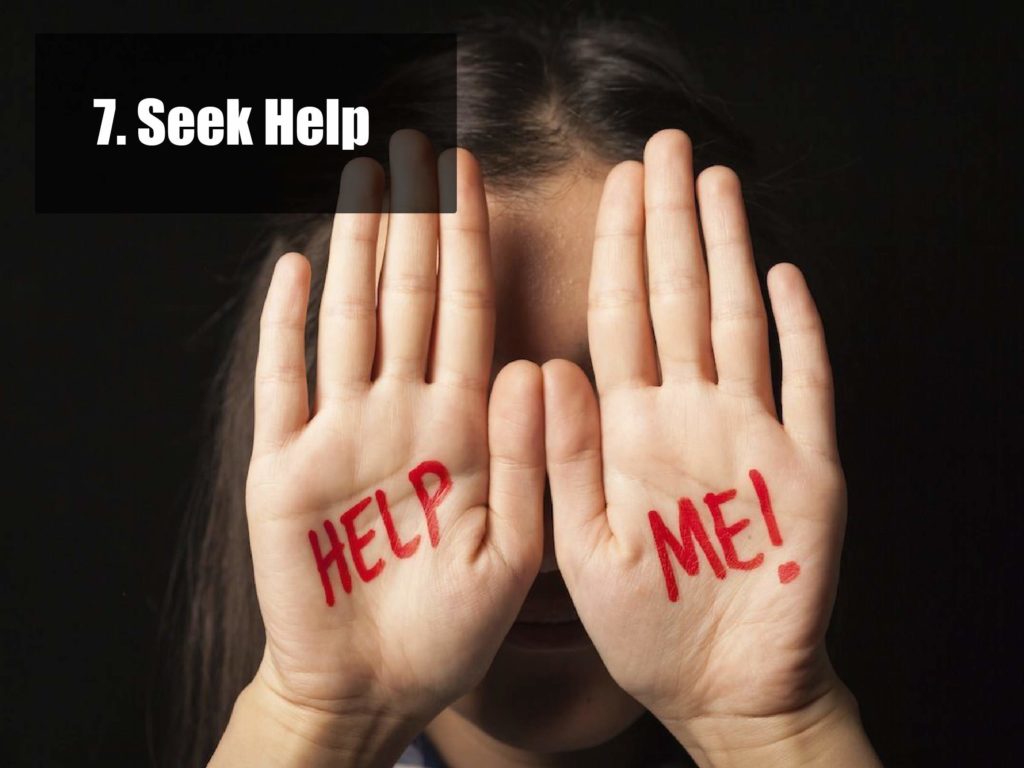A prediabetes diagnosis may come as a shock for a lot of people, especially since the condition does not usually come with any observable symptoms.
You were going on with your day one minute; and then the next, your blood glucose test results came back, revealing your higher-than-normal sugar levels.
Now your doctor says you need to change your lifestyle, as well as avoid certain food and drinks that you love, lest you risk developing type 2 diabetes.
With all these sudden changes, it’s understandable that a range of emotions would be felt.
Confusion. Fear. Denial. Worry. Panic. Sometimes, even anger.
Emotions are often overlooked when treating this condition, but it is extremely important that you address them. Here are 7 ways you can do it:
1. Acknowledge Your Emotions
Emotions are a natural part of a human being’s psyche. And with the shock of this diagnosis, plus the huge amount of changes that need to follow, it’s easier to think emotions are something that will easily pass; you just need to do what the doctor tells you to do.
However, emotions tend to rear its head in the most inopportune moments, especially when you do not acknowledge them.
When you feel negatively towards your health status, you will have a more difficult time introducing any lifestyle change. Any habit you are trying to form will not last. Motivation will be at an all-time low.
Be kind to your emotions, and give yourself permission to acknowledge and understand them.
2. Shift Your Mindset
Feeling out of control after your diagnosis is normal. All of a sudden, you can’t eat a lot of sweet food. You have to cut back on soda, carbohydrates, and anything sugary. You would start to feel like the prediabetes owns your body, not you.
Shifting your mindset is the answer to this “out of control” feeling.
Have a mantra that you would take comfort in when the feeling arises. For example, “Prediabetes does not control my life” or “All these changes mean I can go back to having normal blood sugar levels.”
Keep in mind that prediabetes is reversible and these changes would benefit you tremendously.
3. Know That There Is No Such Thing As Handling It “Perfectly”
 Now that you need to go see your doctor for regular appointments and blood sugar tests (once or twice a year, usually), some would feel the need to do everything “perfectly.”
Now that you need to go see your doctor for regular appointments and blood sugar tests (once or twice a year, usually), some would feel the need to do everything “perfectly.”
You wake up and make sure your meals are within the recommended carbohydrate and sugar content. While this is definitely something you should do, it may get out of hand. You would feel pressured and stressed, thinking that if things are not done perfectly, you would end up with a full-blown diabetes.
Take a step back. If you are following what your doctor says, then you are already doing great. Wanting to “do more” would only unnecessarily stress you out.
4. Plan Your Day
This is a new thing for you. Some of you would not even have heard of prediabetes right before receiving the diagnosis.
Everything your doctor says might begin to sound nothing more than medical gibberish. Confusion would ensue, leaving you with more questions than answers.
Prediabetes can be tough to manage, especially at the beginning of your lifestyle change. What would help is writing down your plan for the day—the amount of food you need to eat, when you will have your physical activities, and the like. You can even show your doctor your plans, so you’ll know if you need to change anything.
5. Channel Negative Emotions
Anger over your diagnosis is another normal emotion to feel. However, this doesn’t mean that you have the license to be destructive to yourself or to other people.
Instead, use it as an energy source. Channel it to doing something good, such as exercise workouts or physical activities in a way that will not hurt yourself.
Be self-aware and know when you’re starting to feel angry. Knowing how to handle negative emotions will minimize any destructive actions, be it towards yourself or others.
6. Be Surrounded By People Who Will Help You
Feeling down or sad because of all the changes you need to incorporate to your life can get overwhelming.
Find things that you can enjoy doing without compromising your health. Ask for help from people around you. Let them know what you are going through, so you won’t feel alone. Remember to always take care of yourself.
7. Seek Help
If you feel like your sadness cannot be helped despite everything you did, tell your doctor. They can most likely refer you to support groups or counselors to help you properly deal with it. There is no shame in seeking help, especially if this would improve your health and the way you see yourself.
Keep it together
Before rushing to the drugstore to buy dietary supplements for diabetics, you should first calm down and make a sense out of things. The most important thing to keep in mind while trying to come to terms with your prediabetes diagnosis is that you have to keep it together.
The emotions you’re feeling are normal, the fear is natural, and the uncertainty is common. However, you should face them with a clear head and remember that this is the first step to your healing.










